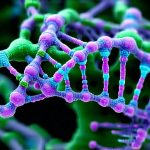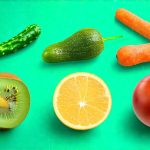Our bodies are remarkable machines, constantly performing countless biochemical reactions essential for life. At the heart of these processes lie enzymes, biological catalysts that accelerate these reactions without being consumed themselves. Their efficiency dictates how well we digest food, absorb nutrients, generate energy, and even think. However, enzyme function isn’t static; it’s profoundly influenced by what we eat. A diet lacking essential nutrients can hinder enzyme production and activity, while a thoughtfully curated dietary approach can significantly enhance their performance, leading to improved overall health and wellbeing. This article will delve into the intricate relationship between balanced nutrition and enzyme efficiency, exploring how specific food choices can optimize these vital biological workhorses.
Enzymes aren’t one-size-fits-all; they require specific cofactors – vitamins, minerals, and other compounds – to function optimally. Think of enzymes as tiny machines needing fuel and maintenance. Without the right ‘fuel’ (cofactors), their performance drops, and the biochemical processes they govern become sluggish or even fail. Furthermore, dietary patterns can directly impact the gut microbiome, which plays a crucial role in producing certain enzymes and supporting overall digestive health. Therefore, understanding how to nourish our bodies with enzyme-supporting nutrients is paramount for maximizing biological function and achieving peak vitality.
The Cornerstone: Nutrient Density & Whole Foods
The foundation of any enzyme-efficient diet lies in prioritizing nutrient density. This means focusing on foods that pack the most vitamins, minerals, antioxidants, and other beneficial compounds per calorie. Processed foods, often stripped of their inherent nutrients during manufacturing, simply don’t provide the building blocks enzymes need to thrive. Instead, we should turn towards whole, unprocessed foods – fruits, vegetables, lean proteins, healthy fats, and whole grains. A diet rich in these elements provides a constant supply of cofactors essential for enzyme activity.
Consider vitamin B1 (thiamine), crucial for carbohydrate metabolism and energy production. A deficiency leads to impaired enzymatic reactions involved in glucose breakdown. Similarly, magnesium is vital for hundreds of enzymatic processes, including those related to muscle function and nerve transmission. Whole foods like spinach, almonds, and dark chocolate are excellent sources of magnesium. Focusing on variety within these whole food groups ensures a broader spectrum of nutrients are consumed, supporting a wider range of enzymatic functions.
Beyond individual nutrients, the synergistic effect of compounds found in whole foods is often overlooked. For example, vitamin C enhances iron absorption, and antioxidants protect enzymes from oxidative damage. These interactions highlight why isolating nutrients in supplement form isn’t always as effective as obtaining them through a diverse diet. The natural matrix within food provides a more bioavailable and beneficial nutritional experience.
Hydration & Digestive Support
Enzymes function best in a hydrated environment. Water is not only essential for life but also crucial for enzymatic reactions to occur efficiently. Dehydration can slow down digestion, reduce nutrient absorption, and ultimately impair enzyme activity. Aiming for consistent hydration throughout the day – typically around eight glasses of water – supports optimal enzyme function and overall bodily processes.
Furthermore, a healthy digestive system is paramount for efficient enzyme use. The gut microbiome, teeming with beneficial bacteria, produces certain enzymes that aid in digestion. Consuming probiotic-rich foods like yogurt, kefir, sauerkraut, and kimchi nourishes this microbial community, enhancing its enzymatic capacity. Simultaneously, including prebiotic fibers – found in onions, garlic, bananas, and asparagus – provides fuel for these beneficial bacteria, further strengthening their digestive power. A thriving gut microbiome directly translates to improved nutrient absorption and overall enzyme efficiency.
Finally, avoiding excessive sugar and processed fats is critical. These dietary components can disrupt the gut microbiome balance, leading to inflammation and impaired digestion. A diet focused on whole foods, adequate hydration, and probiotic/prebiotic support creates a favorable environment for optimal enzymatic function within the digestive system.
Enzyme-Specific Dietary Boosters
Let’s explore how specific nutrients can directly enhance the activity of key enzymes involved in vital processes:
-
Lipase Support: Lipase is responsible for breaking down fats, and its efficiency influences fat absorption and energy metabolism. To support lipase function:
- Include foods rich in choline, like eggs and liver, which aids in fat digestion.
- Ensure adequate intake of vitamin C, as it supports bile acid production – essential for fat emulsification and lipase activity.
- Healthy fats themselves (avocados, olive oil) stimulate bile release, indirectly boosting lipase function.
-
Amylase Assistance: Amylase breaks down carbohydrates into simpler sugars. Supporting amylase efficiency can help manage blood sugar levels and optimize energy production:
- Focus on complex carbohydrates like whole grains, legumes, and vegetables – these are digested more slowly, reducing the burden on amylase.
- Include foods containing manganese, such as brown rice and pineapple, which acts as a cofactor for amylase.
- Chewing food thoroughly before swallowing increases surface area, allowing amylase to begin its work more effectively.
-
Protease Promotion: Protease breaks down proteins into amino acids. Efficient protease function is essential for muscle repair, hormone production, and immune system support:
- Consume a moderate amount of protein from diverse sources – lean meats, fish, beans, lentils – providing the necessary substrates for protease activity.
- Include vitamin B6-rich foods like poultry, bananas, and potatoes, as it’s a cofactor in amino acid metabolism.
- Consider incorporating naturally occurring digestive enzymes found in pineapple (bromelain) or papaya (papain) to further aid protein breakdown – though this shouldn’t replace a balanced dietary approach.
In conclusion, optimizing enzyme efficiency isn’t about chasing quick fixes or relying solely on supplements. It’s about embracing a holistic dietary lifestyle centered around nutrient density, whole foods, adequate hydration, and digestive support. By understanding the intricate relationship between nutrition and enzymes, we can empower our bodies to function at their peak potential, paving the way for improved health, vitality, and overall wellbeing. Remember that consistency is key – small, sustainable changes to your diet can yield significant long-term benefits.


















